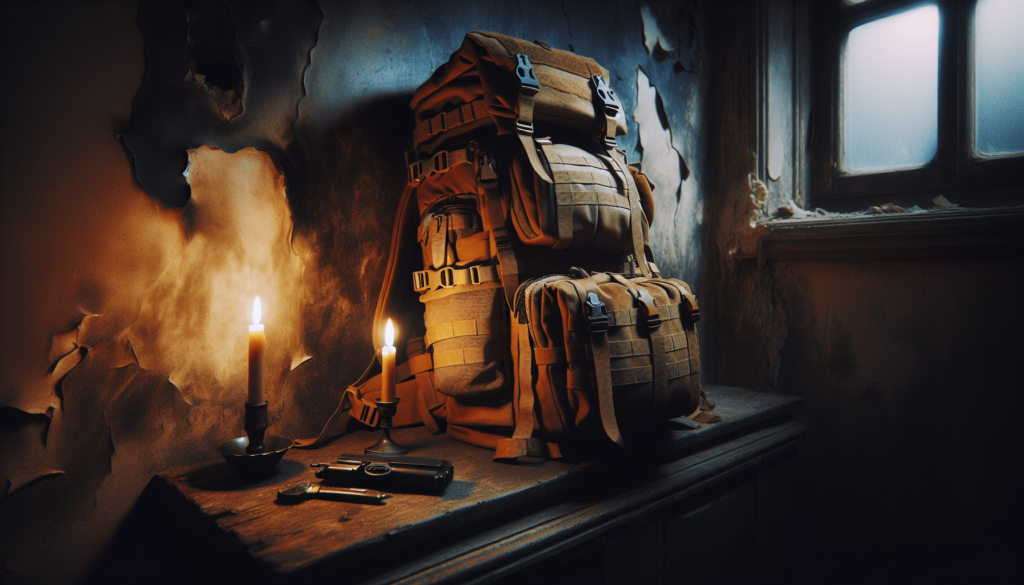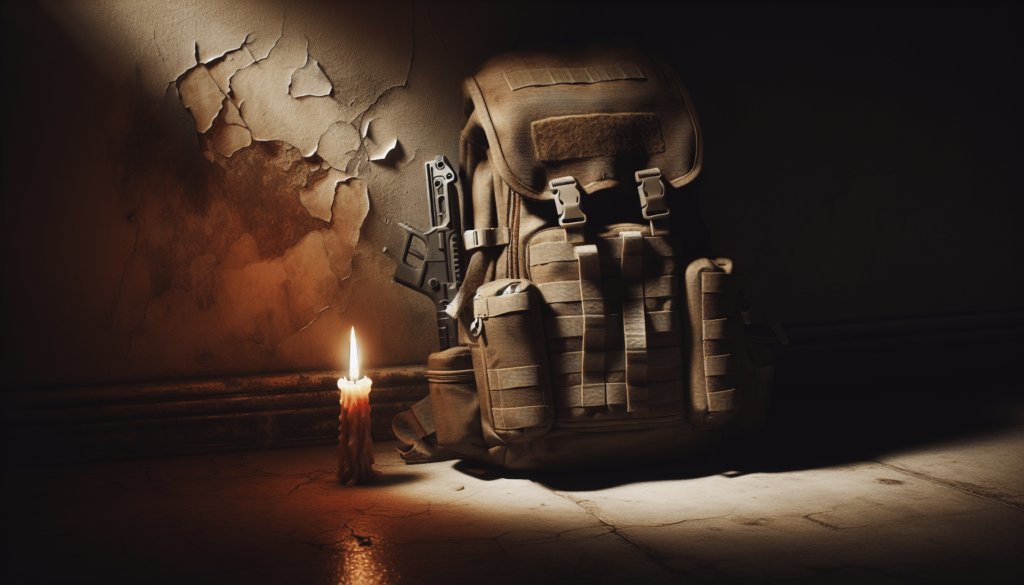
Have you ever imagined what you would do if the world as we know it started falling apart? It’s a thought that often creeps up on me while scrolling through endless news articles filled with chaos and calamity. You know those moments — when hurricanes pummel the coastlines, wildfires blaze through forests, and the economy seems to teeter on the brink. It’s during these times that I start thinking about the folks who have turned doomsday preparedness into an art form. So, I thought, what are people who prepare for an apocalypse called?
The World of Preppers
Now, before you imagine someone holed up in a bunker surrounded by canned beans and MREs, let’s clarify who I’m talking about. These individuals, often referred to as “preppers,” are much more than the stereotypical image you might have in mind. Their lives are dedicated to preparedness, ready to face an apocalypse with courage and, dare I say, a little flair.
Understanding Preppers
Preppers are a diverse bunch. They range from those who take practical steps to ensure a comfortable life during a power outage, to individuals whose homes could rival Fort Knox. The fundamental idea they share is readiness for any form of disaster, whether it’s natural, economic, or even societal collapse. It’s a fascinating subculture that raises the question: are they onto something, or just paranoid?
Degrees of Preparedness
The level of preparation varies widely. Some fill their pantries with extra food and water. Others invest in off-grid power solutions and fortified shelters. It’s not uncommon to find them learning survival skills like gardening, first aid, and even self-defense. There’s a whole spectrum of preparedness, each tailored to different beliefs about what could go wrong.
The History Behind Prepping
This idea of preparing for the apocalypse isn’t entirely modern. It’s woven into the fabric of human history. We’ve always had a tendency to expect the worst — centuries ago, that might have meant a bad harvest, while today, it could mean a nuclear war or technological meltdown.
Historical Precursors
Consider the Cold War era, a time when the threat of nuclear war felt imminent. People built fallout shelters in their backyards, stocked with essentials to outlast a nuclear winter. The duck-and-cover drills taught in schools are reminiscent of today’s modern prepping practices.
The Influence of Pop Culture
There’s no denying that movies, TV shows, and books have played a big role in shaping the image of the doomsday prepper. Think of the apocalyptic worlds depicted in shows like “The Walking Dead” or “Mad Max.” They’re intense, dramatic, and have ingrained certain survivalist ideals into our collective consciousness.

Why Do People Become Preppers?
The motivations behind prepping can be as varied as the preppers themselves. But generally speaking, they share a desire to protect themselves and their loved ones from potential catastrophe. Here are a few common reasons people turn to prepping.
Survival Instinct
It’s human nature to plan for the worst. We stockpile for potential shortages, save money for rainy days, and make contingency plans. Preppers take this instinct to the next level, ensuring that when disaster strikes, they’re not just surviving — they’re thriving.
Mistrust in Institutions
Some preppers lack faith in government bodies or believe that societal systems could collapse without warning. This lack of trust can drive them to become self-reliant, ensuring they have the means to sustain themselves outside the main grid.
Personal Experiences
Past experiences can also act as a catalyst. Living through events like hurricanes, wildfires, or even financial crises can instill a desire to be better prepared for any future disasters. For many, it’s not about paranoia; it’s about peace of mind.
How Do Preppers Prepare?
If you’re still reading, perhaps you’re starting to see the practical side of things. Preppers rely on a mix of strategies, skills, and supplies. Let’s take a closer look at how they make readiness a way of life.
Stockpiling Supplies
Food and water storage is a common strategy. Non-perishables, canned goods, and dehydrated meals make up the bulk of what many preppers keep on hand. They’re ready for scenarios where grocery runs are not an option.
| Supply Type | Common Items |
|---|---|
| Food | Canned goods, freeze-dried meals, grains |
| Water | Bottled water, water purification tablets, filters |
| Medical Supplies | First aid kits, prescription meds, bandages |
Learning Practical Skills
Self-sufficiency is key, and skills like gardening, hunting, and basic medical training are invaluable. Preppers often find community in sharing and teaching these skills, further reinforcing their supportive subculture.
Building Safe Havens
Some take it a step further, investing in physical structures designed for safety. Whether it’s a hidden bunker or a self-sustaining property, these homes are a testament to their devotion to survivalist principles.

The Perception of Preppers
Despite their careful planning, preppers can sometimes be misunderstood. They’re often cast in an unflattering light, labeled as alarmist or overly cautious.
Stigma and Stereotypes
Hollywood has painted a vivid picture of what a prepper looks like, often exaggerating traits to enhance the drama. The reality is much more mundane and practical — think less “Doomsday Castle” and more “family camping trip.”
Bridging the Gap
The divide between preppers and the rest of society may be narrowing. As more people experience emergencies firsthand, the preparedness mindset becomes more appealing. A balanced approach, perhaps drawing from prepper tactics, could be key to fostering resilience.
What We Can Learn from Preppers
Whether you’re ready to pack a bug-out bag or simply intrigued by the concept, there’s much to glean from the prepper mindset. It teaches us about resilience, foresight, and the value of being ready for anything.
Everyday Benefits
Being prepared isn’t just about facing major catastrophes. It’s about handling everyday disruptions with ease. A little advance planning can alleviate stress and instill confidence, whether you’re facing a winter storm or a power outage.
A Sense of Community
Preppers know the value of connections and often build networks of like-minded individuals. These communities can offer support, knowledge, and a sense of solidarity, which is arguably just as important as physical supplies.
Conclusion
So, what are people who prepare for an apocalypse called? They’re preppers, yes, but they’re also planners, thinkers, and doers, just like you and I. They remind us of the beauty and necessity of being truly prepared for whatever life throws our way. And as I sit here, contemplating the fragility of our world, I can’t help but wonder if there’s a little prepper in each of us, just waiting to be discovered.
